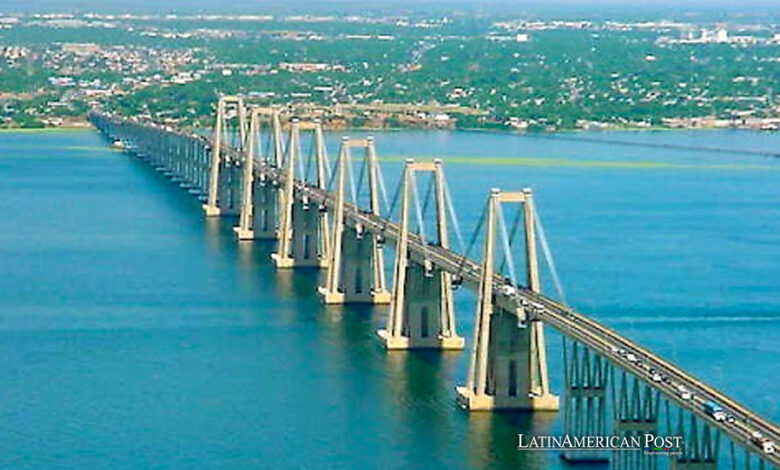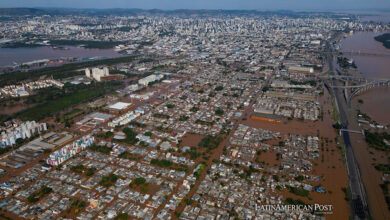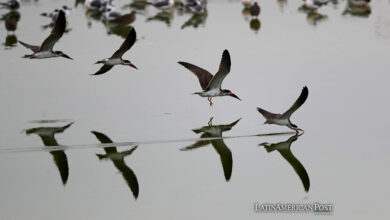Reviving Maracaibo: Venezuela’s Battle for its Largest Lake

In the heart of Venezuela’s northwestern state of Zulia, a critical environmental initiative is underway at Lake Maracaibo, the nation’s largest lake. Despite the challenges it has faced, the Venezuelan Ministry of Ecosocialism, following directives from President Nicolás Maduro, has launched a “strategic master plan” aimed at rescuing, conserving, and sustainably developing this vital water body, a testament to the lake’s resilience and the country’s commitment to its preservation.
The Institute for the Control and Conservation of the Lake Maracaibo Basin (ICLAM) has recently ramped up its efforts by conducting extensive water and sediment sampling. This initiative is part of a broader campaign to assess and mitigate the lake’s environmental challenges, as detailed in a video published by the ministry on Instagram.
Investigating Lake Maracaibo’s Current State
The current sampling phase, aligned with the dry season 2024, involves meticulous physical and chemical analyses. Scientists are mainly focused on determining the levels of nutrients such as nitrogen and phosphorus in the lake and conducting microbiological studies to ascertain the presence of total and fecal coliforms, among other contaminants.
This environmental push is not a solitary endeavor, but a collaborative effort. It is supported by a scientific and technical team from ICLAM’s Management of Environmental Research and Innovation, with additional backing from Petróleos de Venezuela (PdVSA), the state oil company. This collaboration underscores not just the government’s commitment, but also the collective responsibility we all share in addressing the environmental degradation that has plagued the lake, including pollution from the oil industry.
Historically, Lake Maracaibo has been plagued by a myriad of severe environmental issues. These include frequent oil spills, which have not only contaminated the water but also led to the death of numerous aquatic species. Additionally, the lake has suffered from eutrophication, a process where excessive nutrients in the water cause an overgrowth of algae, leading to a depletion of oxygen and the death of other organisms. This has drastically affected the lake’s ecosystem. On March 18, the former Vice President of Public Works and Services, Néstor Reverol, reported that public workers and volunteers had removed 169,000 tons of waste from the lake. This clean-up began with the most contaminated coasts, primarily affected by oil waste, and over seven months, approximately 606 kilometers of old pipelines in the lake were replaced with more flexible ones to prevent future oil spills.
Consequences for Biodiversity
The impact of pollution on wildlife has been significant. In 2023, local environmental groups Mapache Ecoaventura and Fitlosophy treated 22 animals harmed by residual oil spills in Lake Maracaibo, highlighting the ongoing threat to biodiversity.
The efforts to revive Lake Maracaibo are not just crucial for the environment but also for the local communities that depend on it for their livelihoods. The lake’s degradation has had profound socio-economic consequences, affecting the quality of life and health of the local population. For instance, the decline in fish populations due to pollution has significantly impacted the fishing industry, a major source of income for many local residents. Similarly, the decrease in tourism, caused by the lake’s deteriorating condition, has led to a loss of jobs and economic opportunities for the community.
The Venezuelan government’s strategic master plan for Lake Maracaibo represents a hopeful step toward reversing decades of neglect. Its endeavor resonates deeply within the Latin American context, where environmental conservation is increasingly seen as essential to sustainable development.
However, the success of such initiatives is not guaranteed and requires sustained commitment and resources. As Venezuela grapples with broader economic challenges, the revitalization of Lake Maracaibo tests the country’s capacity to balance immediate human needs with long-term environmental stewardship. There are also potential risks and challenges associated with the project, such as [specific risks and challenges], which the stakeholders are actively addressing to ensure the project’s success.
Navigating Political and Economic Fluctuations
The story of Lake Maracaibo is a poignant reminder of the complexities involved in managing natural resources in a region marked by political and economic fluctuations. It underscores the need for integrated approaches that affect local communities, government agencies, and international partners to ensure that environmental rehabilitation efforts are effective and inclusive.
Also read: Venezuela’s Wildfire Crisis: Latest to Hit Latin American Countries
As the project progresses, the world watches with anticipation, envisioning a future where Lake Maracaibo can be transformed from a symbol of environmental crisis to a testament to recovery and sustainable management possibilities. The initiative aims not just to restore the lake’s ecological health, but also to rekindle the cultural and economic vibrancy that Lake Maracaibo once symbolized for Venezuela, a vision that inspires hope and optimism.





